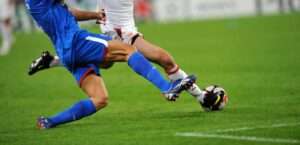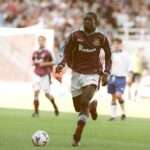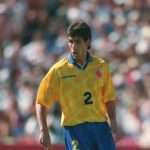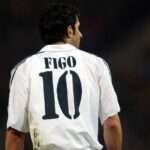The importance of a soccer player’s diet cannot be underestimated when planning the path to success on the field.
As ex-Arsenal manager Arsene Wenger once said: “Food is like kerosene. If you put the wrong one in your car, it’s not as quick as it should be”.
The Frenchman famously changed his players’ eating habits after arriving from Japanese club Nagoya Grampus Eight in 1996 and his methods have been incorporated at other Premier League clubs. Boiled fish, pasta and vegetables became a staple of the average Arsenal player’s diet.
If a player does not have a healthy diet, they will not be able to train as hard, will struggle to improve their play and be more susceptible to tiredness.
What to Eat:
Below are some essential nutrients which players need:
Simple carbohydrates: found in sweets, cakes, soft drinks, jam
Complex carbohydrates: found in rice, bread, pasta, potatoes, cereals, fruit
Saturated fats: found in butter, margarine, cheese, pasties
Unsaturated fats: found in sunflower oil, salmon, nuts
Protein: found in milk, chicken, eggs, fish, yogurt
Vitamins and minerals: found in fruit, vegetables, dairy products
Fiber: found in seeds, peas, beans
Water: found in foods, drinks, formulated sports drinks.
Soccer players need energy, which is most commonly found in carbohydrate. This should account for nearly 70% of a soccer player’s diet, which many fail to realize.
The optimal carbohydrate calorie intake for a player is 2400-3000, but many players fail to get near this, meaning their glycogen levels are sub-par. Those who start a game with low glycogen levels can struggle after half-time because they have little carbohydrate left in their muscles by the time the second half starts.
Good carbohydrate intake can be achieved by snacking throughout the day, rather than three regular meals, and it is particularly beneficial to refuel just after training or a match to replenish the energy stores in the muscles.
Bananas, muesli bars, crumpets, bagels, low fat rice pudding, yogurts, milkshakes and fruit are just some of the snacks that are high in carbohydrate but low in fat.
A healthy diet means a player has the possibility to recover more quickly from an injury.
What to Eat Before a Match
“The meal before the match should consist of carbohydrates with just a little protein because proteins might cause difficulties with digestion. At that moment you could say that the energy basis of the player is set up.
“You have to try and maintain glucose in the blood by giving it some carbohydrates like in pasta or rice and always in combination with vegetables and a small amount of protein, and as free from fat as possible. So fish is ideal. That would be the perfect meal before a match. We usually eat three hours before a game but I would recommend eating even a bit before that; something like three-and-a-half hours before would be perfect.”
What to Eat After a Match
“When the match has finished I would recommend eating 30 minutes after the final whistle. The reason for trying to eat as soon as possible after a match is because there is a period of time, up to 45 minutes after physical exercise, or there is a window of recovery for the body, where you can feed it with carbohydrates and protein. At the end of the match, the muscles in the hepatic portal system of the player are completely exhausted so in this phase you have to recover glucose and carbohydrates via pasta or rice. I say pasta or rice because they are the best things to eat at that moment.
“And you also have to restore the player’s damaged protein balance so the player is fit again for physical exercise the day after and does not suffer from muscular problems. So to prevent that you need to take proteins. We usually eat on the bus. We have a cold pasta salad with tuna, eggs and Turkey to ensure that the players eat something in those 45 minutes after the match which gives them the proteins and carbohydrates to rebalance their bodies.”
What to Drink
The best fluid to drink is a diluted carbohydrate/electrolyte solution, such as Gatorade and Powerade.
It is best to drink before, during and after a training session, and also to ensure that fluids are taken on regularly throughout a match. Avoid drinking too much at once because this can make you bloated and put you at risk of getting an upset stomach. Taking on small amounts of fluids on a regular basis is key.




